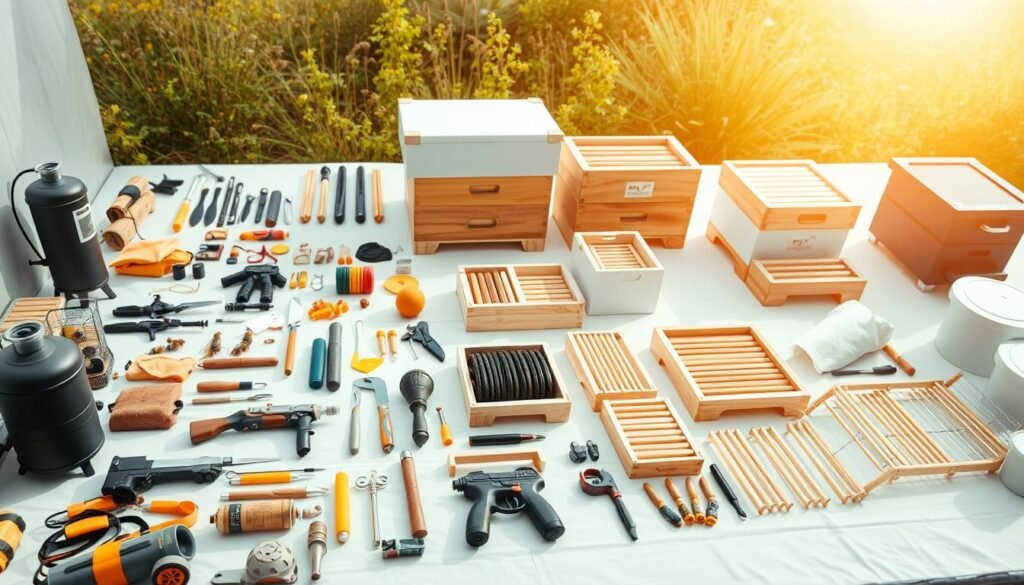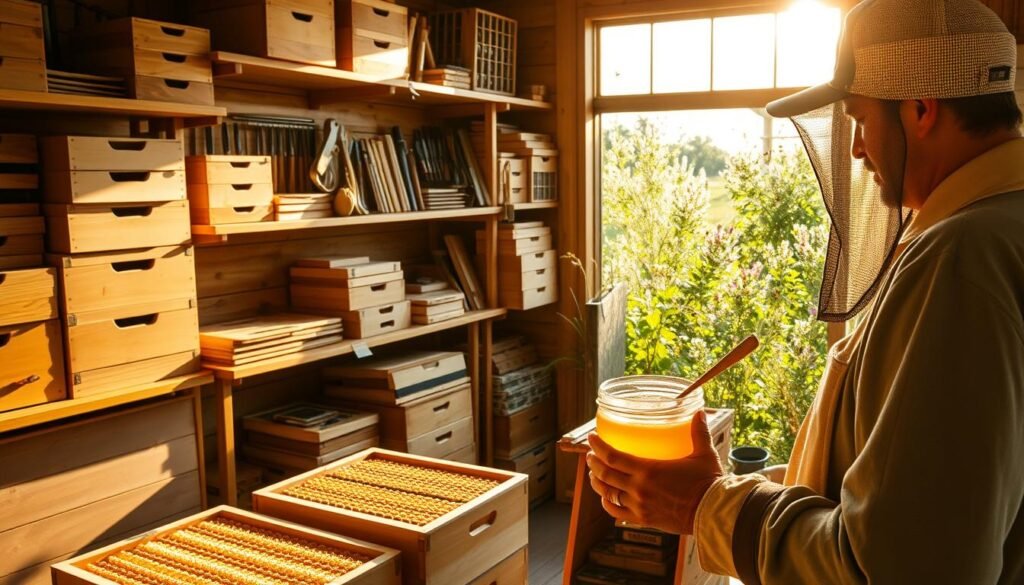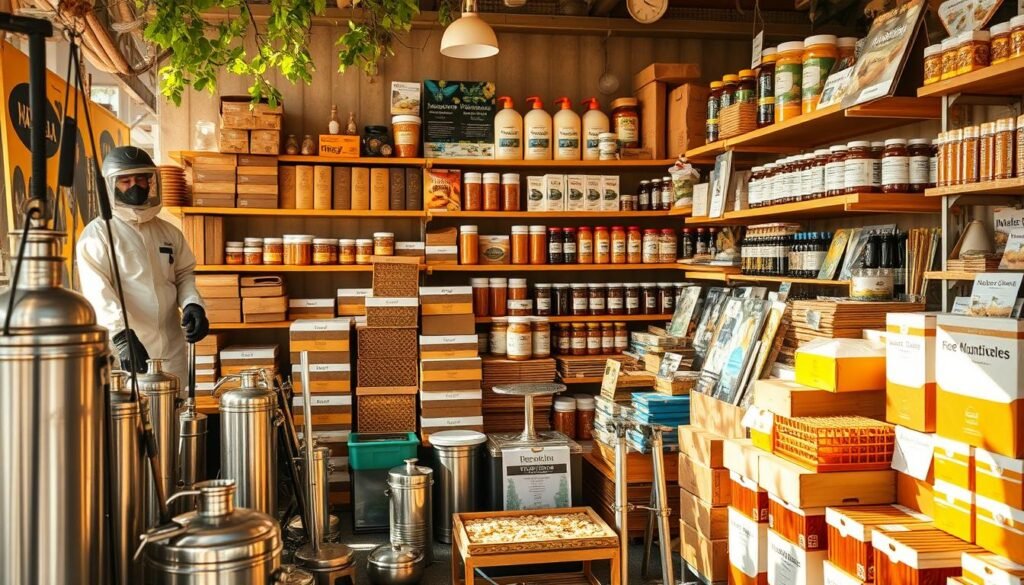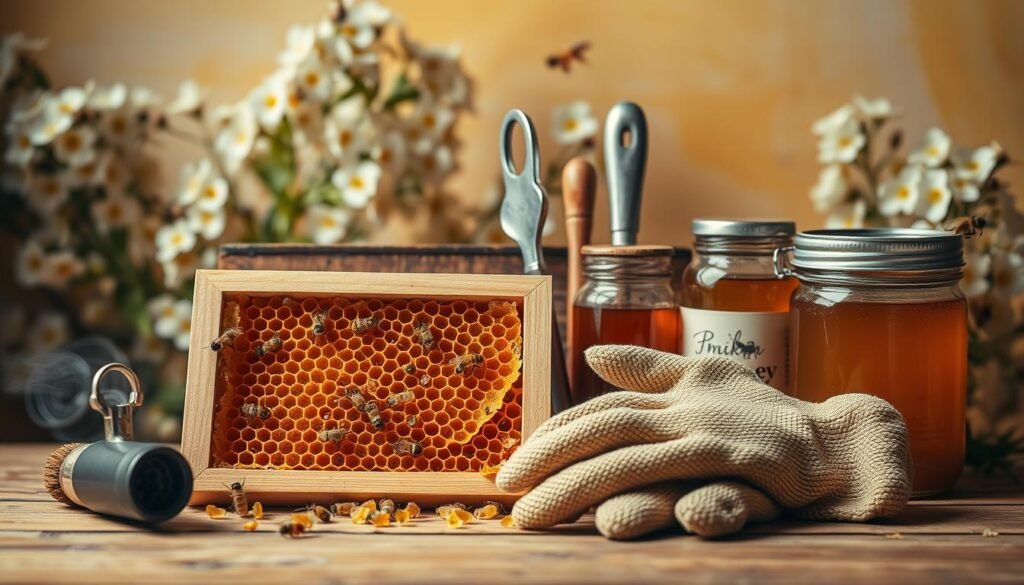Australia’s apiary community continues to expand rapidly, with both hobbyists and professionals seeking trusted solutions for their hive management needs. Modern apiculture demands equipment that withstands local climates while supporting sustainable practices. Thankfully, digital shopping platforms now offer seamless access to tools and gear designed specifically for Australian conditions.
The shift to online purchasing has transformed how enthusiasts source their essentials. From protective gear to honey extraction systems, reliable retailers provide detailed product information and competitive pricing. This convenience eliminates geographical barriers, allowing beekeepers in regional areas to access premium items as easily as urban dwellers.
Today’s market caters to all skill levels. Beginners can find starter kits with clear instructions, while experienced keepers explore advanced tech like hive monitoring sensors. Many shops also stock eco-friendly options, aligning with Australia’s focus on environmental stewardship.
When choosing where to shop, prioritise vendors offering quality guarantees and responsive support. Proper equipment maintenance directly impacts honey yields and colony health, making these factors crucial for long-term success.
Key Takeaways
- Australia’s apiculture sector is booming, driving demand for specialised gear
- Online stores provide nationwide access to international and local brands
- Product ranges now include smart tech for improved hive productivity
- Quality assurance remains critical for effective colony management
- Digital platforms enable easy comparison of features and prices
The Growing Landscape of Beekeeping in Australia
Australia’s relationship with pollinators has entered an exciting new phase. Urban rooftops and rural properties alike now host buzzing colonies, reflecting a nationwide passion for sustainable food systems.
Industry Trends and Market Growth
Recent data shows registered beekeepers increased by 18% in three years. Commercial honey production now exceeds 30,000 tonnes annually, while hobbyist numbers surge in cities like Sydney and Melbourne. This growth stems from:
- Improved access to climate-resistant hive designs
- Government support for pollination initiatives
- Consumer demand for local honey varieties
Extreme weather patterns drive innovation in protective gear. Manufacturers now offer UV-stable materials and ventilated suits tailored for Australian summers.
Local Community and Hobbyist Insights
Backyard enthusiasts account for 43% of new colony registrations. Many start with compact hives perfect for urban spaces. “Our workshops sell out within hours,” notes a Brisbane apiary educator. “People want to help honeybees thrive while producing their own golden harvest.”
Regional associations report increased youth participation through school programs. Meanwhile, commercial operators invest in automated extraction systems to meet export demands. This dual growth creates opportunities for suppliers offering both starter kits and industrial-grade equipment.
Quality Beekeeping Supplies for Every Apiary
Superior gear forms the backbone of thriving colonies. Australian apiarists face unique challenges, from tropical humidity in Queensland to arid zones in Western Australia. Equipment must withstand these extremes while supporting efficient hive operations.
Premium Standards for Australian Beekeepers
Leading manufacturers design tools with local conditions in mind. Stainless steel smokers resist corrosion from coastal air. Treated timber boxes maintain structural integrity through wet seasons. These material choices directly impact colony health and honey yields.
Certification marks matter when selecting apiary essentials. Look for AS/NZS compliance on protective gear and food-grade ratings for extraction tools. A Brisbane-based apiarist notes: “Proper certifications saved me thousands in replacement costs last season.”
Established brands like Mann Lake bring four decades of expertise to Australian shores. Their USA-crafted foundation sheets and hive tools meet international benchmarks while adapting to native flora patterns. This fusion of global quality and local relevance benefits both commercial operators and backyard enthusiasts.
Investing in durable items pays long-term dividends. High-grade gear requires less frequent replacement, freeing time for colony monitoring. Superior ventilation in suits enhances comfort during summer inspections, while precision-crafted extractors preserve honey quality.
Diverse Range of Hive Kits and Starter Equipment
Selecting the right foundation for your apiary begins with understanding colony needs and operational scale. Modern solutions cater to varying expertise levels, from weekend enthusiasts to full-time apiarists managing multiple hives.
Starter Hive Kits for Beginners
New enthusiasts appreciate ready-to-use packages containing pre-assembled components. Missouri’s 8-frame starter hive ($169.99-$199.00) simplifies initial setup with pre-waxed frames and durable cedar boxes. These compact designs help beginners monitor colonies without overwhelming space management.
First-year bundles ($244-$279) add smoker tools and instructional guides. One Melbourne user noted: “The included handbook helped me spot queen cells within three weeks.” Complete kits eliminate compatibility concerns between parts – a common frustration for novices.
Advanced Configurations for Experienced Beekeepers
Seasoned operators favour modular systems like 10-frame hives ($215-$225) that support rapid expansion. Interchangeable components allow custom setups for specific climates or honey flows. Northern Queensland apiarists often combine ventilation screens with deeper brood chambers.
Scalable designs prove cost-effective over time. Additional supers stack neatly onto original kits, maintaining structural integrity across seasons. This adaptability makes initial investments grow alongside your apiary’s needs.
Essential Tools and Accessories for Beekeepers
Successful colony management relies on purpose-built implements that streamline daily tasks while prioritising safety. Modern apiary operations demand a curated selection of reliable items designed for precision and durability.
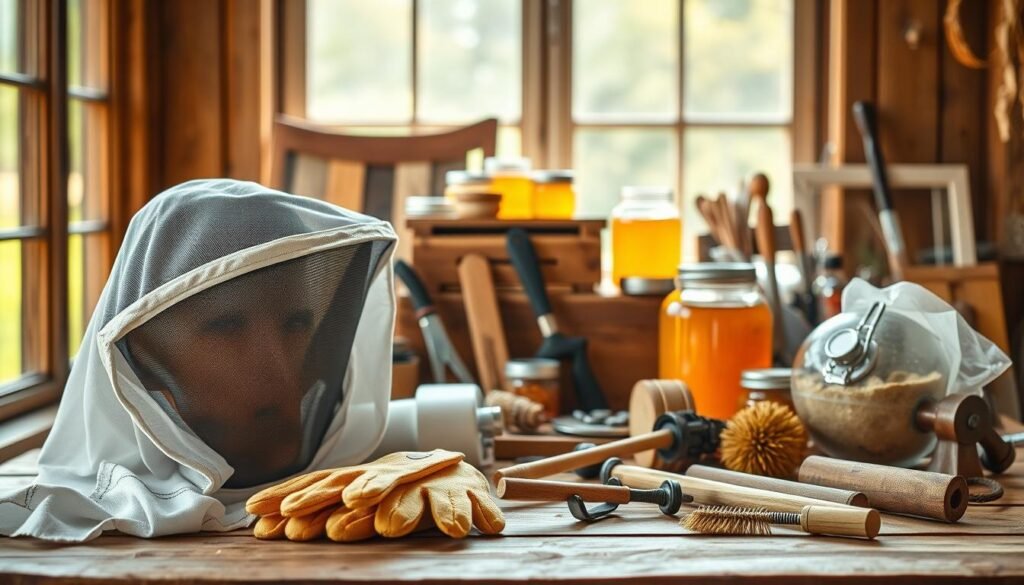
Hive Tools, Extractors & Protective Gear
Every apiarist’s toolkit starts with two fundamentals: a multipurpose hive tool and a quality smoker. The J-shaped metal implement effortlessly pries apart hive components and scrapes excess wax. As Flow Hive experts note: “These dual-purpose tools reduce inspection time while minimising colony disturbance.”
Smokers remain critical for calming bees during maintenance. Opt for models with heat shields and adjustable airflow. One Tasmanian producer reports: “Our stainless steel smokers last 7+ years even with weekly use.”
Protective outfits form the first defence against stings. Full-body suits with sewn-in veils offer maximum coverage, while ventilated gloves maintain dexterity. Look for triple-stitched seams and elasticised cuffs for secure closures.
- Manual extractors suit small-scale operations (20 frames/day)
- Electric models process 100+ frames hourly for commercial needs
- Uncapping knives with heated blades improve harvest efficiency
Specialised add-ons like queen excluders and pollen traps enhance monitoring capabilities. Durable construction matters – food-grade stainless steel prevents contamination and withstands rigorous cleaning cycles.
Comparing Leading Brands: Missouri, Mann Lake & Flow Hive
Australian apiarists face a crucial decision when selecting their equipment partners. Three industry leaders deliver distinct approaches to hive management, each excelling in specific areas of craftsmanship and innovation.
Missouri’s Time-Tested Reliability
Operating through Mountain Sweet Honey Company, this Midwest specialist ships bees nationwide during peak seasons. Their complete product line features pre-assembled cedar hives and wax-coated frames designed for swift colony establishment. Free shipping on orders over $150 makes their starter kits particularly appealing for regional buyers.
Mann Lake’s Heritage of Excellence
With four decades of experience, this US manufacturer prioritises durable, food-grade tools. Over 80% of their core products – from stainless steel smokers to ventilated suits – originate from American workshops. Beyond equipment, they partner with conservation groups, offering disaster recovery support for apiaries affected by bushfires or floods.
Flow Hive’s Modern Revolution
This Australian-born innovator changed harvesting practices with their patented tap system. “Beekeepers can collect honey without disturbing the brood chamber,” explains a Sydney-based user. Their modular designs suit urban spaces while maintaining traditional hive inspection capabilities.
While Missouri focuses on accessibility and Mann Lake champions durability, Flow Hive reimagines apiary workflows. All three maintain robust customer service networks, ensuring Australian users receive tailored advice for local conditions.
Warranty, Free Shipping and Customer Service Advantages
Smart purchasing decisions extend beyond product selection in modern apiary management. Savvy Australian enthusiasts prioritise suppliers offering logistical support and protection plans that safeguard their investments.
Free Shipping Offers and Order Benefits
Leading providers like Missouri Beekeeping Supplies eliminate delivery costs for orders exceeding $150, making bulk purchases economically viable. Regional apiarists particularly benefit from these incentives, as remote locations often incur higher shipping fees.
Strategic bundling helps maximise value:
- Combine seasonal essentials like hive tools and protective gear
- Coordinate group orders with local apiary clubs
- Schedule deliveries before peak nectar flows
One Victorian buyer notes: “Saving $47 on shipping let me upgrade to a stainless steel extractor.” Always check item eligibility, as some heavy or oversized products may exclude complimentary delivery.
Reliable After-Sales Support
Mountain Sweet Honey Company sets industry standards with dedicated representatives available at (706) 886-1322. Their team assists with:
- Warranty claims for manufacturing defects
- Compatibility checks between hive components
- Troubleshooting during initial setup phases
Comprehensive protection plans typically cover 1-3 years, with some premium tools offering lifetime guarantees. Transparent return policies ensure satisfaction – most suppliers accept unused items within 30 days if specifications don’t match requirements.
Proactive maintenance guidance further enhances equipment longevity. As one NSW apiarist confirms: “Their video tutorials helped me repair a smoker instead of replacing it.” This support structure empowers users to resolve issues quickly, maintaining uninterrupted colony care.
Expert Tips for a Successful Beekeeping Experience
Mastering colony care requires blending practical skills with ongoing learning. New enthusiasts often underestimate how seasonal changes affect their winged charges. Proper preparation prevents common pitfalls while fostering healthy honey production.
Foundations for New Apiarists
Begin by studying native flora patterns and local council regulations. Understanding flowering cycles helps anticipate nectar flows. Flow Hive experts emphasise: “Always approach colonies calmly with protective wear and smoking tools ready.”
Join regional associations to access workshops and mentorship programs. These networks provide hands-on guidance for hive assembly and swarm management. Many groups offer discounted equipment bundles through partner suppliers.
Sustaining Colony Health
Conduct weekly inspections during active seasons, checking for queen activity and brood patterns. Look for unusual cell formations that might indicate disease. One Gold Coast keeper shares: “Spotting mites early saved three of my hives last summer.”
Adapt maintenance routines across seasons:
- Spring: Monitor population growth and add supers
- Summer: Ensure shade and water access
- Autumn: Prepare winter stores
Digital tracking apps simplify record-keeping. Log treatments, harvest dates, and weather impacts to refine your strategies annually. This data becomes invaluable when expanding operations or troubleshooting issues.
Sustainable and Organic Beekeeping Practices
Environmental stewardship drives modern apiculture, with eco-conscious methods becoming essential for colony longevity. Producers now prioritise practices that protect pollinators while maintaining productive hives. This shift reflects Australia’s growing demand for ethically sourced hive goods.

Balancing Ecology and Productivity
Natural pest control strategies replace synthetic chemicals in progressive apiaries. Essential oil blends and food-grade oxalic acid combat mites without harming colonies. Mountain Sweet Honey Company champions this approach, offering chemical-free starter packs priced 15% below conventional alternatives.
| Practice | Organic Method | Conventional Alternative | Benefit |
|---|---|---|---|
| Pest Control | Thymol-based treatments | Synthetic miticides | Safer for brood development |
| Hive Materials | Untreated timber | Pressure-treated wood | Reduces toxin exposure |
| Product Handling | Cold-pressed extraction | High-heat processing | Preserves enzymes in honey |
| Packaging | Recycled cellulose wraps | Plastic containers | Biodegrades in 12 weeks |
Certification programmes verify adherence to strict organic standards. These require documented hive histories and approved forage zones. “Our audit process ensures traceability from flower to jar,” explains a NSW certification body representative.
Eco-packaging innovations reduce waste without compromising product safety. Cornstarch-based protective wraps and reusable delivery crates now ship nationwide. Such measures align with Australia’s 2025 plastic reduction targets while protecting delicate hive goods during transit.
How to Choose the Right Beekeeping Equipment
Selecting optimal apiary tools requires strategic thinking tailored to individual needs and environmental factors. Australian conditions demand gear that performs reliably through scorching summers and tropical downpours while supporting colony health.
Key Considerations for Apiary Investments
Your operational goals dictate equipment specifications. Hobbyists managing backyard hives benefit from compact 8-frame systems, while commercial producers need industrial-grade extractors. Modular designs prove invaluable for scaling operations without replacing entire setups.
Climate plays a crucial role in material selection. UV-stabilised plastics and galvanised steel components withstand harsh sunlight better than untreated alternatives. Coastal regions require corrosion-resistant fasteners – a detail often overlooked by new enthusiasts.
Budget planning extends beyond initial costs. Durable cedar hive bodies might cost 30% more upfront but last twice as long as pine equivalents. As one Victorian apiarist notes: “Quality smokers save replacement fees and reduce hive stress during inspections.”
Compatibility remains critical when mixing components from different brands. Standardised frame depths and foundation types prevent mismatches during honey flows. Always verify measurements before purchasing add-ons like queen excluders or feeders.
Established suppliers offer better warranty terms and localised support – crucial when urgent replacements are needed. Prioritise companies providing detailed product specifications and climate suitability guides tailored to Australian regions.
Maximise Productivity with the Latest Beekeeping Innovations
Cutting-edge technologies are reshaping how Australian apiarists manage their colonies. Smart monitoring systems and precision tools now offer unprecedented control over hive conditions, helping enthusiasts achieve better results with less effort.
Enhancing Hive Performance with Modern Upgrades
Wireless sensors track temperature, humidity, and activity levels in real time. These devices send alerts when hives need attention, reducing manual checks by up to 40%. Data-driven decisions help prevent swarming and improve honey yields.
Automated feeding systems maintain optimal nutrition during dry spells. Solar-powered models suit remote locations, while app-controlled units let urban keepers manage colonies from work. One Queensland producer reports: “Our harvests increased 22% after installing smart feeders.”
Modular hive designs now incorporate removable inspection panels and improved ventilation. These upgrades simplify maintenance while protecting colonies from extreme weather. Combined with eco-friendly materials, they create healthier environments for pollinators year-round.

